As Mormons, Emma and Roy Hann of Dundee grew up with the certainty that their God-ordained destiny was to become parents.
Mormon women, they say, are “expected” to have big families – although they admit not necessarily as big as theirs.
The Hanns ended up having 13 children – currently aged from 31 to seven – making them Scotland’s largest family.
However, after splitting from The Church of Jesus Christ of Latter-day Saints six years ago and having “the blinkers off” after a lifetime of living as Mormons, Mr and Mrs Hann have been reflecting on their life choices.
‘What have we done?’
“Don’t get me wrong – we don’t regret our children,” says Emma.
“But we did go into it thinking God will provide and everything will be fine, and now we kind of sit here thinking ‘what have we done’?
“It’s really hard. We can just about meet the bigger issues like the physical needs of our family.
“But when you realise the emotional needs of everybody, you realise you are not really meeting them very hard.
“Obviously you don’t ever regret the children that you have, but there probably is regret in the way that we made choices.
“It has made us question a lot of things about our own lives.
“We see things a lot clearer now and a lot healthier than we did before when we went through a Mormon filter. We are more wide awake!”
BBC documentary series
Mr and Mrs Hann spoke to The Courier as they play a starring role in a three-part BBC documentary series which captures the highs and lows of life inside Scotland’s biggest families.
Filmed over the course of a typically energetic and eventful 12 months, the series follows the fortunes of the Hanns in Dundee and the Sullivans in Lossiemouth.
With seven of their 13 children still living at home, the series follows Roy and Emma who live in their six-bedroom semi-detached house in the Butters Loan area of Dundee.
The couple were brought up in the Mormon faith where they were taught not to delay having children.
They reflect on that experience which has shaped their lives.
However, they also talk about the emotions and challenges involved when they moved away from the church.
Why did they leave the church?
Roy reveals they decided to leave the Mormon Church after being “challenged by some of the policies and doctrines” surrounding historical attitudes to race and LGBTQI issues.
Elaborating on their reasons for leaving, Emma says: “Obviously it’s been a lifetime. We were born into the religion.”
However, Roy adds: “It’s like the blinkers are off. Once they were removed it was very difficult to stay.
“We were challenged by some of the policies and doctrines within the Mormon Church that we feel are quite discriminatory.
“We didn’t find it to be a safe place for our family to be in anymore.
“It’s been challenging for us because it was our community. They’ve turned their back on us.”
Asked to elaborate on the policies and doctrines they found discriminatory, Roy says: “For me, they had a policy about blacks in the priesthood in Mormonism where blacks weren’t allowed the priesthood until 1978.
“The more I delved into that the more I realised that was driven by racism, and that the teachings of actual previous prophets in the Mormon Church were quite racist teachings.
“That was really challenging for me. I found I couldn’t belong to an organisation that had that in its history.”
Emma adds: “There was also discrimination towards homosexuals.
“We’d already kind of put things on the shelf when it came to the treatment of the LGBQI community.
“It just doesn’t fit into Mormonism. They kind of ignored anybody who is homosexual.
“They actually dismiss it. They call it a same-sex attraction rather than it actually being people born this way. They dismiss it. They try to tell people to get over it. So, I had kind of shelved them of that years ago because it didn’t sit well.
“Then a few years back the church actually made a silly policy because they took a stance and said children of gay parents couldn’t be baptised.
“If even a couple had separated and had had children and for instance, the dad married another man, the child – even if it was living in the mum’s home – couldn’t be baptised or take part in all of the same things that children of that age would be able to do.
“They wouldn’t be able to go to the Temple because they weren’t a member.
“When the child turned 18, they could then disavow their parents.
“But when I heard this I couldn’t even walk across the road and sit down on the pew.
“It was basically saying that children could be punished for the so-called sins of their parents.
“At that point, I couldn’t physically remain sitting on the pew and give myself as a number in their attendance.
“It’s been a really painful difficult thing for us to go through,” she says, adding that they remain “spiritual” but no longer consider themselves to be religious at all.
Only one of their children has a “loose connection” with the church, they add.
The Courier contacted The Church of Jesus Christ of Latter-day Saints for comment on the Hanns’ views. There was no response.
No stranger to large families
With their Mormon backgrounds, large families are no stranger to Dundee-born Emma, who grew up in a family of eight, and Aberdeen-boy Roy, who was one of nine.
They always presumed they’d have a big family of their own.
This came to pass with their own brood comprising Rachel, 31, Sophia, 29, Polly, 28, Charlotte, 26, Alice, 24, Annabelle, 22, Jennifer, 20, Isabella, 18, Jonas, 17, Enos, 14, Eva, 13, Posy,11 and Meg, 7.
Even with just seven of their children still living at home, however, they describe the rising cost of living as “really worrying and concerning”.
Roy, 52, who works at King’s Cross Hospital in Dundee, and has been offered a second job with the Scottish Ambulance Service, says: “Electricity has already doubled and our mortgage has jumped up.”
However, he adds: “The concern is it hasn’t fully hit us yet. We are bracing ourselves for what’s coming.”
Emma, 53, who is co-owner of the Empire State Coffee shop in Dundee, says that with six of their children away from home and two of the seven that remain working, “things have become a little better as the children have grown up”.
That said, the couple says that children’s expectations are “way higher than they used to be” compared to when their older children were younger.
They add that “what people define as poverty now has also changed”.
Emma says that in the past, some people in wider society have judged them and said it’s their own fault they have such a large family.
However, in spite of the pressures, and their differing perspective on the influence of the church, they have “always managed to get through”.
They even moved to America for seven years because, at that time, Roy could earn higher wages as a nurse there.
“We’ve always tried to do it ourselves,” says Emma.
“We knew we had hard choices. The only person we looked to at that time I guess was God.
“We weren’t looking for anyone else to pay our way.”
Can Emma remember names and ages?
Emma can rattle off all the names and ages of her children without a problem.
But she laughs that what she increasingly struggles with is remembering their full dates of birth – especially for the younger ones.
With just two boys out of their 13 children, the girls are perhaps inevitably a “more dominant force in the home”.
“The boys spend a lot of time in their room on the X-Box – they stay out of the way of the girls!” laughs Emma.
At the same time, though, their youngest Meg is “absolutely spoiled” by her big sisters.
“When Meg is 25, her oldest sister will be 50, so that’s quite a big spread!” says Emma, who is now a granny thanks to her daughter Polly having two children Lachlan, 5, and Mylo, 3.
“She’s always going to have someone to look out for her.
“Meg is also an auntie. She has been since she was little.
“There are pros and cons of it all. Some of the older girls had taught her to swear when she was a little girl. None of them had that kind of parenting! It’s different.
“But she has so many mums because of all these big sisters.”
How to watch the programme
Scotland’s Biggest Families is a Friel Kean Films production for BBC Scotland.
Episode 2/3, airs on BBC One Scotland from 8pm to 9pm on Monday November 7.
Episode 1/3, which aired on October 31, can be viewed on iPlayer.
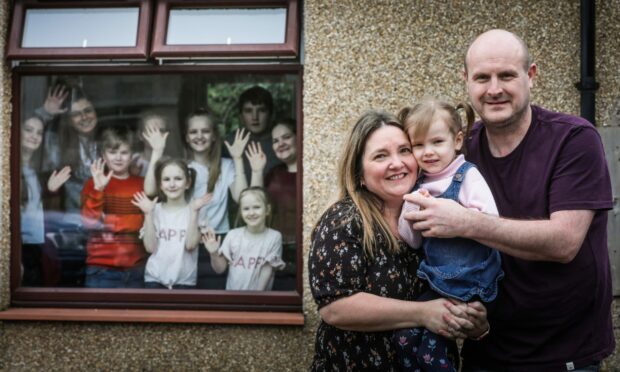
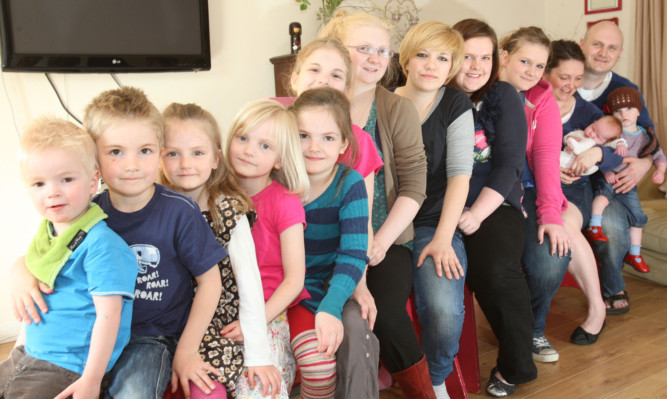
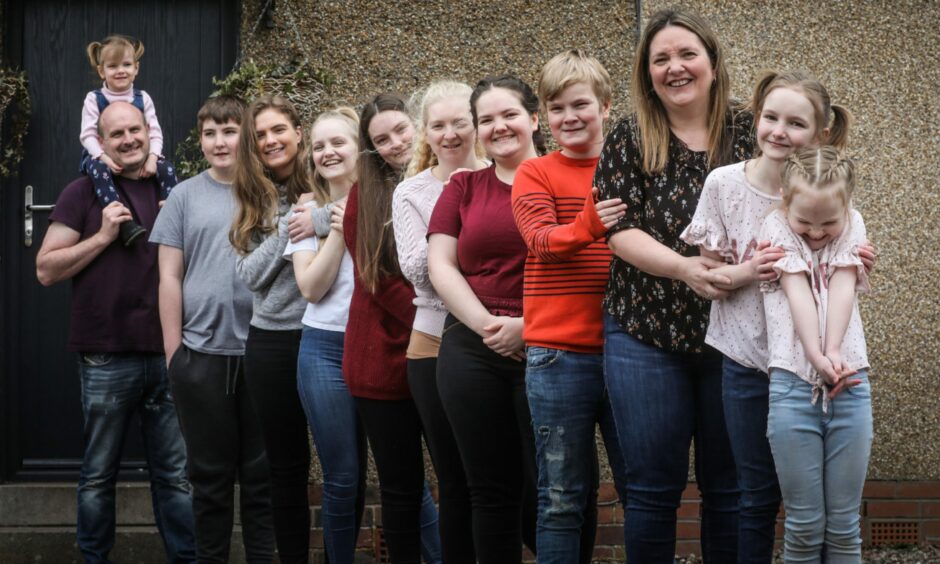
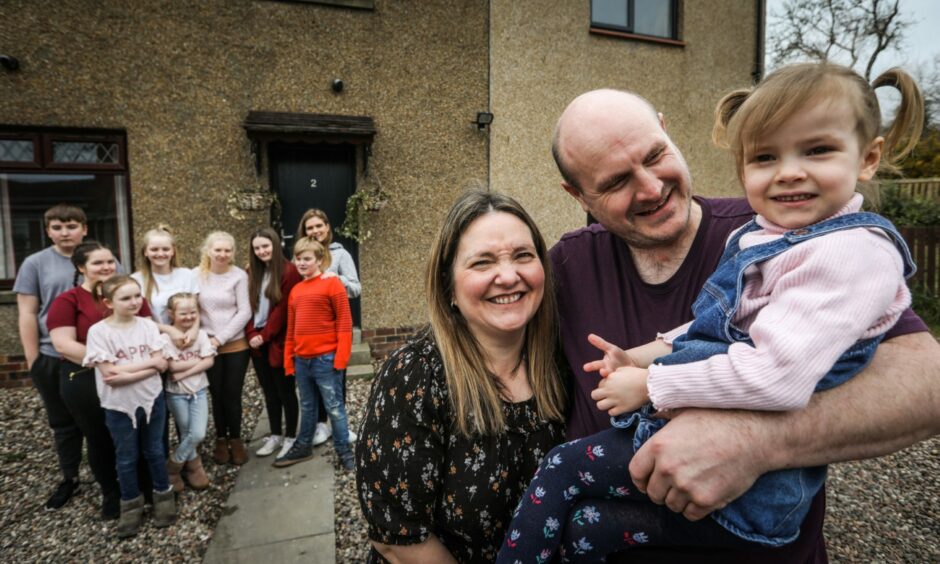

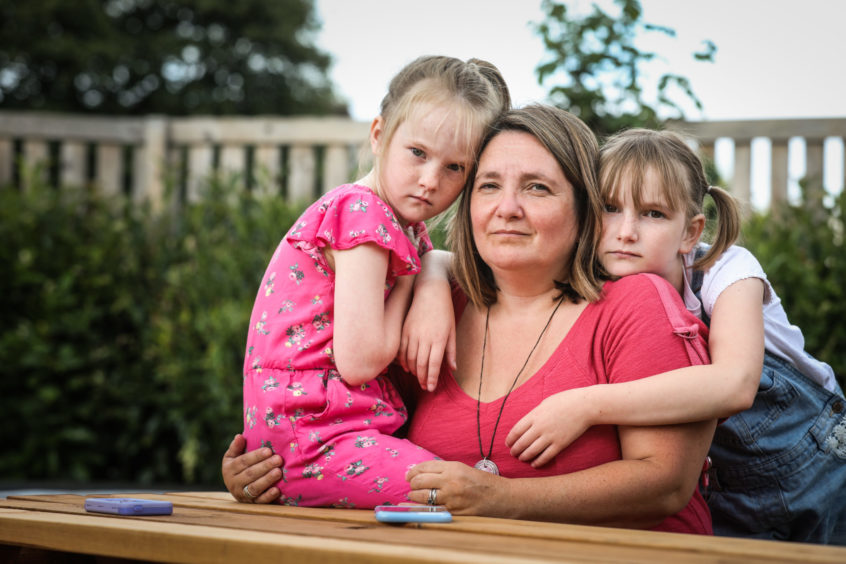

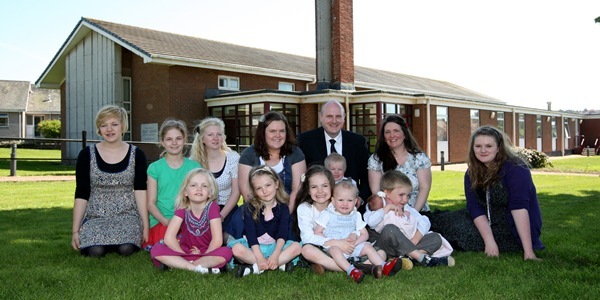
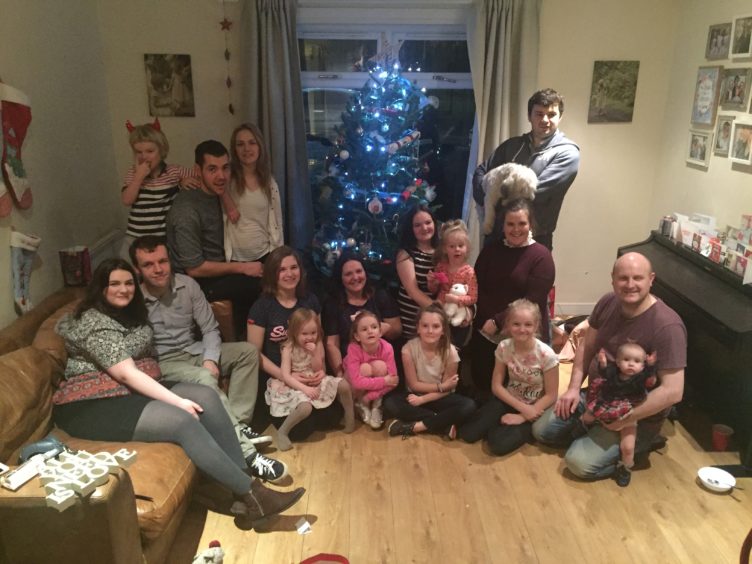

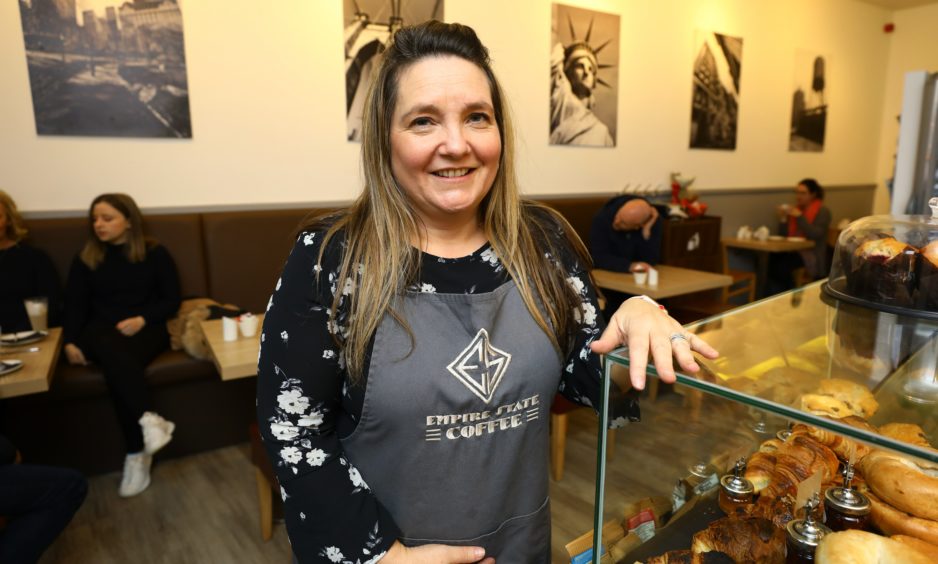
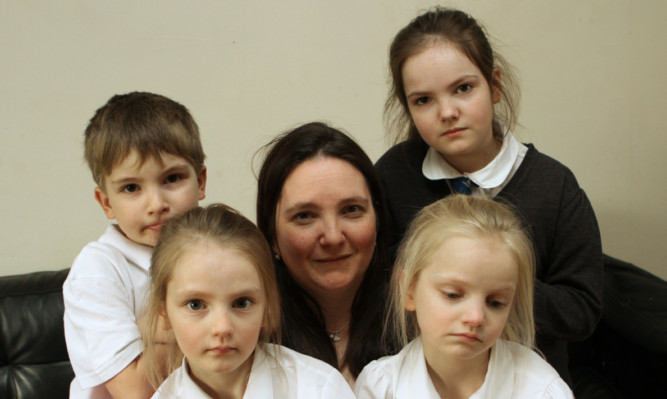
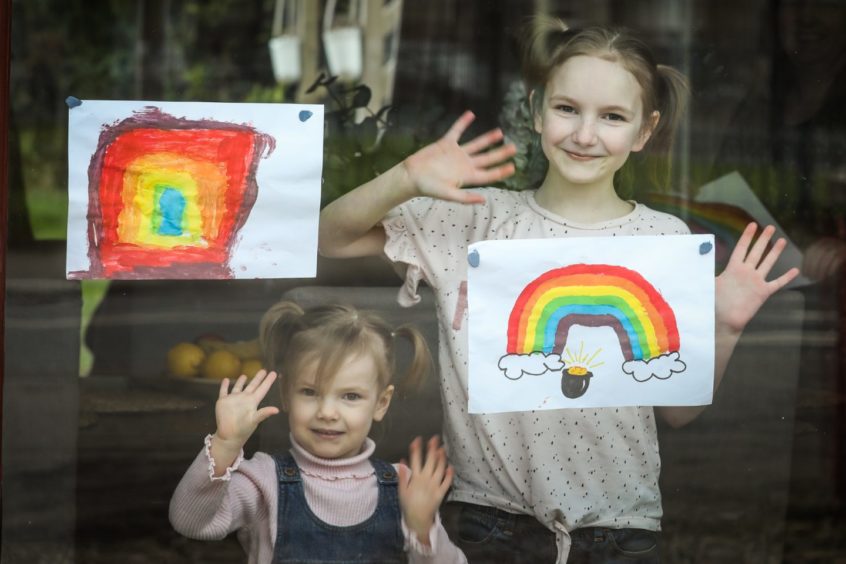










Conversation